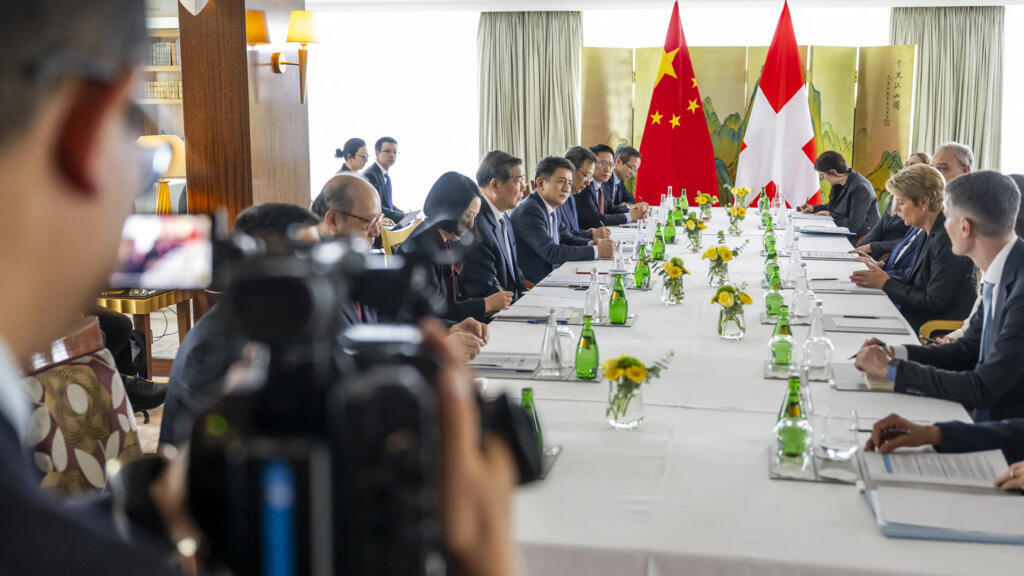On Saturday, senior officials from the United States and China convened in Geneva for a significant face-to-face meeting, marking a crucial moment in their ongoing efforts to de-escalate the protracted trade conflict that has intensified between the two powers. This trade war was ignited by US President Donald Trump's implementation of extensive tariffs on Chinese imports, which sought to address long-standing grievances regarding trade practices and intellectual property rights.
The trade tensions have resulted in a series of retaliatory measures from Beijing, leading to a tit-for-tat escalation between the two nations. As the trade war progressed, both countries have felt the economic repercussions, with various sectors affected and global markets reacting to the uncertainty. With this backdrop, the Geneva meeting is seen as a pivotal point for dialogue and negotiation, hoping to chart a new course away from the brink of further confrontation.
In recent statements, President Trump has indicated a willingness to reconsider the existing tariffs on Chinese goods, suggesting a potential easing of the trade measures if certain conditions are met. This shift in tone may signal a readiness on the part of the US to explore potential compromises that could facilitate a resolution to the trade disputes. The willingness to lower tariffs reflects a growing recognition of the economic impact of the trade war, not only on bilateral trade but also on the broader global economy.
The meeting in Geneva is significant as it underscores the importance of direct dialogue between the senior officials of both nations. Diplomatic channels have often been strained, and face-to-face discussions provide an opportunity for both sides to express their positions more clearly and seek common ground. The stakes are particularly high as economic relations between the two countries influence global trade dynamics and political relations.
Given the intricate nature of the trade issues at hand, the discussions in Geneva are likely to cover a range of topics. Key points of contention, including trade imbalances, tariffs, technology transfer, and intellectual property rights, will require careful negotiation. The outcome of these discussions may not immediately resolve the trade war but could lay the groundwork for more comprehensive agreements in the future.
The meeting in Geneva follows previous attempts at negotiations, which have often stalled due to considerable disagreements between the two sides. The hope is that with officials at the highest levels engaging directly, a new momentum can be achieved that might lead to lasting solutions. Both nations are acutely aware of the ramifications that could arise from continued conflict, making this meeting a crucial step towards improved trade relations.
As the discussions unfold, observers will be closely monitoring any signs of progress or breakthroughs that could indicate a pathway out of the trade war. The willingness of both sides to engage in dialogue may be seen as a positive development in an otherwise tumultuous relationship. The world will be watching to see how these talks in Geneva could influence the future of US-China relations and the broader context of international trade.











